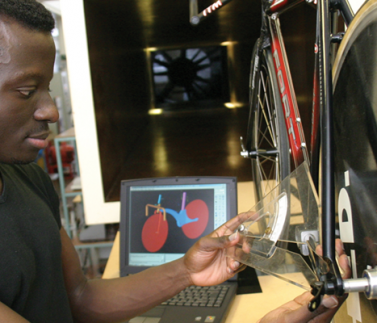
Brexit day is here; but where next for the UK’s immigration system?
As the UK’s membership of the European Union drew to a close this week, there were some significant announcements on the future of the UK’s immigration system.
The government announced a new ‘global talent’ visa to replace the current Tier 1 ‘exceptional talent’ route, while the Migration Advisory Committee (MAC) published its recommendations on a potential Australian-style points-based system for the UK. The government is expected to rely on the analysis of the MAC as it develops its own points-based system for when the UK leaves the EU. So, how will this impact universities and our ability to attract the talent that we need?
Universities UK welcomed Monday’s announcement of a new global talent visa, beginning on 20 February. The visa will lift the cap on the number of scientists, mathematicians and researchers eligible through the Tier-1 route, and allow UK Research and Innovation (URKI) to fast-track qualified applicants by assessing their scientific credentials, instead of them applying through immigration officials at the Home Office. The visa also expands the definition of ‘talent’ to include researchers and specialists at all stages of their careers, rather than just the principal and most experienced researchers.
This is a positive step towards ensuring that universities can attract the brightest scientists and researchers to the UK with minimal barriers. It also sends out an essential message to international talent that they are welcome and needed here in the UK: it is estimated that the UK will need to recruit 70,000 new technicians every year just to replace those that are retiring [Gatsby Charitable Foundation]. In addition, these staff are often highly skilled; 90% of research technicians from the EU at UK universities have a degree, and 25% have PhDs.
Also this week, the Migration Advisory Committee responded to the Home Secretary’s commission into a points-based system and salary thresholds for immigration. The Committee was lukewarm on the idea of a new points-based system in the UK, instead concluding that the government could achieve their aims by reforming the Tier 1 exceptional talent route. The committee’s report advocates for the skilled entry route known as Tier 2 to remain, but with reforms, and also conceded that the current Tier 2 salary threshold needs to be lowered from £30,000 to a proposed £25,600.
UUK welcomes a number of the MAC’s recommendations, in particular, the proposed retention of the current Tier 2 framework.
This would allow the system to remain employer-led, which will continue to benefit the higher education sector. We also support the recommendation to lower the new entrant salary threshold to £17,900, and to extend the new entrant rate to five-years. While lowering the salary threshold to £25,600 is not aligned to UUK’s current position of £21,000, we do recognise that this is a positive step in the right direction.
However, there are some details that we want to engage with the Home Office on to ensure we get the system right for international talent. For example, we have concerns around the MAC’s recommendation that higher education occupations that currently have a different method for setting salary thresholds should be brought within the general framework – this could significantly impact the sector’s ability to employ such staff.
It is often argued that changes to the immigration system in response to Brexit are needed to address public concerns over immigration. To explore this further, we tested public attitudes toward international university staff, and the results revealed that almost nine in ten people believe the UK’s immigration system should prioritise staff who are highly-skilled over staff who are highly-paid, while seven in ten believe a UK points-based system should be designed so that research support staff score highly. The poll also showed that 85% think it is important for the UK to be a world leader in science and research.
As the government pushes ahead with its ambitious agenda to boost the UK’s homegrown and international skills and research base, we have a unique opportunity to create an immigration system that is fit for purpose.
There is a sense of urgency to this opportunity though, if the government wants to have a new system in place by January 2021. We will be working closely with them to ensure this vision is realised for UK universities, so we can attract the staff and students we need to ensure Britain continues to thrive post-Brexit.



